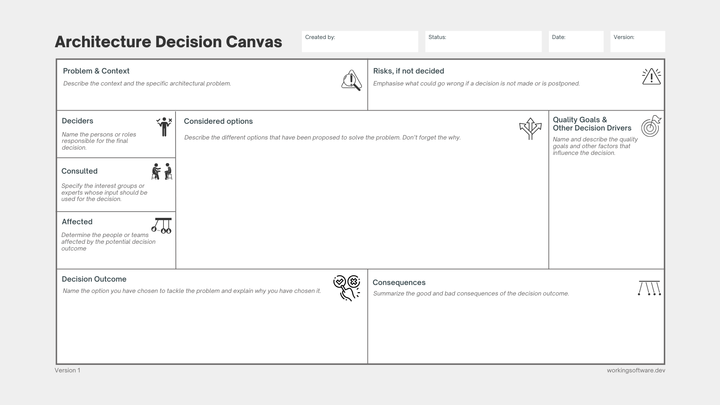Crucial Soft Skills for Tech Leads and Software Architects: 10 Must-Haves for Impact
Over the course of my career as a tech lead and software architect, I've found that many tech leaders are technically excellent but lack soft skills, which affects their leadership quality and effectiveness. Here are my top 10 soft skills for successful tech leads and software architects.

Throughout my career as a tech lead and software architect, I've found that many software architects and technical leaders have strong technical skills, but often struggle in the area of soft skills.
This can lead to less effective architecture and leadership outcomes and limit their overall impact.
From my experience, I've compiled a list of the top 10 soft skills that are essential for productive and solution-oriented architecture work as a tech lead or software architect.
Here are my top ten soft skills for tech leads and software architects:
Focus on the Business Goals
Get the why out of the organisation, i.e. the business goals of a software initiative out of the business.
Focus on aligning the technical efforts with the business goals.
When you understand the 'why' behind the initiatives, technology becomes a powerful enabler for business growth and positive impact on the entire company.
Master Business Communication
Master the ability to communicate with business stakeholders in their language.
Try to establish a ubiquitous language.
This ensures consistency and promotes better understanding and collaboration between technical and non-technical teams.
Clarify Values and Principles
Express your values and principles clearly.
This transparency creates trust and provides a stable basis for decision-making within the team.
Cultivate (Initial) Technology Agnosticism
Cultivate the ability to be neutral and open-minded towards different technologies, tech stacks and tech approaches.
This flexibility makes it possible to choose the most suitable stack and approach for each software initiative.
Adopt a Solution Orientation
Develop a problem-solving mindset.
Instead of rejecting other people's ideas outright, present constructive alternatives.
This promotes a cooperative and positive team environment.
Treat Others with Respect
Treat your peers always respectfully and empathy.
This fosters a supportive and cohesive team dynamic, which is essential for successful collaboration.
Remember: Respect is the glue that holds teams and team members together.
Regulate Emotions Effectively
Learn to control your emotions effectively.
Making decisions with a calm and clear mind ensures objectivity and reduces the risk of conflict.
Facilitate and Empower Others
Take a guiding rather than a controlling role.
Allow your team members to take responsibility and be creative.
Ego-free leadership fosters an environment of respect and teamwork.
Engage in Pragmatic Discussions
Engage in focused, productive discussions.
Stop having lengthy, philosophical debates that don't lead to actionable results.
This keeps the team efficient and goal-oriented.
Stay Aware of Trends
Stay informed about new trends and developments in technology.
By being open to innovation and critically assessing its value, you can ensure that your team stays ahead without taking unnecessary risks.



Comments ()